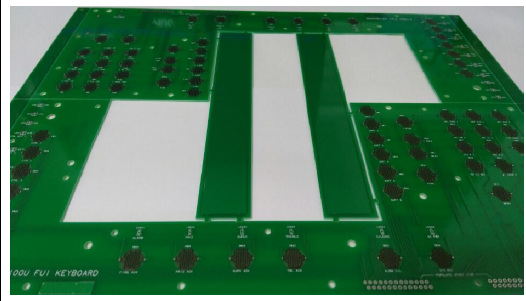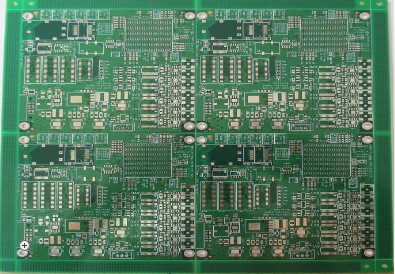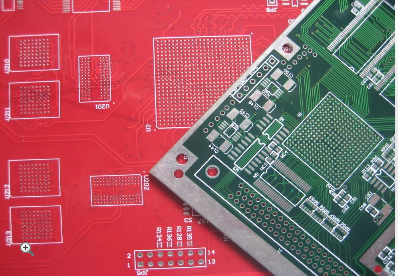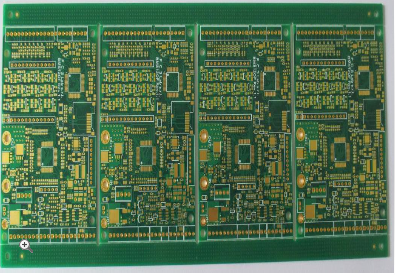-
 Agriculture
Agriculture
-
 Health-Care
Health-Care
-
 Environment
Environment
-
 Construction-Real-Estate
Construction-Real-Estate
-
 Tools-Hardware
Tools-Hardware
-
 Home-Garden
Home-Garden
-
 Furniture
Furniture
-
 Luggage-Bags-Cases
Luggage-Bags-Cases
-
 Medical-devices-Supplies
Medical-devices-Supplies
-
 Gifts-Crafts
Gifts-Crafts
-
 Sports-Entertainment
Sports-Entertainment
-
 Food-Beverage
Food-Beverage
-
 Vehicles-Transportation
Vehicles-Transportation
-
 Power-Transmission
Power-Transmission
-
 Material-Handling
Material-Handling
-
 Renewable-Energy
Renewable-Energy
-
 Safety
Safety
-
 Testing-Instrument-Equipment
Testing-Instrument-Equipment
-
 Construction-Building-Machinery
Construction-Building-Machinery
-
 Pet-Supplies
Pet-Supplies
-
 Personal-Care-Household-Cleaning
Personal-Care-Household-Cleaning
-
 Vehicle-Accessories-Electronics-Tools
Vehicle-Accessories-Electronics-Tools
-
 School-Office-Supplies
School-Office-Supplies
-
 Packaging-Printing
Packaging-Printing
-
 Mother-Kids-Toys
Mother-Kids-Toys
-
 Business-Services
Business-Services
-
 Commercial-Equipment-Machinery
Commercial-Equipment-Machinery
-
 Apparel-Accessories
Apparel-Accessories
-
 Security
Security
-
 Shoes-Accessories
Shoes-Accessories
-
 Vehicle-Parts-Accessories
Vehicle-Parts-Accessories
-
 Jewelry-Eyewear-Watches-Accessories
Jewelry-Eyewear-Watches-Accessories
-
 Lights-Lighting
Lights-Lighting
-
 Fabric-Textile-Raw-Material
Fabric-Textile-Raw-Material
-
 Fabrication-Services
Fabrication-Services
-
 Industrial-Machinery
Industrial-Machinery
-
 Consumer-Electronics
Consumer-Electronics
-
 Electrical-Equipment-Supplies
Electrical-Equipment-Supplies
-
 Electronic-Components-Accessories-Telecommunications
Electronic-Components-Accessories-Telecommunications
-
 Home-Appliances
Home-Appliances
-
 Beauty
Beauty
-
 Chemicals
Chemicals
-
 Rubber-Plastics
Rubber-Plastics
-
 Metals-Alloys
Metals-Alloys
- Masonry Materials
- Curtain Walls & Accessories
- Earthwork Products
- Fireproofing Materials
- Heat Insulation Materials
- Plastic Building Materials
- Building Boards
- Soundproofing Materials
- Timber
- Waterproofing Materials
- Balustrades & Handrails
- Bathroom & Kitchen
- Flooring & Accessories
- Tiles & Accessories
- Door, Window & Accessories
- Fireplaces & Stoves
- Floor Heating Systems & Parts
- Stairs & Stair Parts
- Ceilings
- Elevators & Escalators
- Stone
- Countertops, Vanity Tops & Table Tops
- Mosaics
- Metal Building Materials
- Multifunctional Materials
- Ladders & Scaffoldings
- Mouldings
- Corner Guards
- Decorative Films
- Formwork
- Building & Industrial Glass
- Other Construction & Real Estate
- Wallpapers/Wall panels
- HVAC System & Parts
- Outdoor Facilities
- Prefabricated Buildings
- Festive & Party Supplies
- Bathroom Products
- Household Sundries
- Rain Gear
- Garden Supplies
- Household Cleaning Tools & Accessories
- Lighters & Smoking Accessories
- Home Storage & Organization
- Household Scales
- Smart Home Improvement
- Home Textiles
- Kitchenware
- Drinkware & Accessories
- Dinnerware, Coffee & Wine
- Home Decor
- Golf
- Fitness & Body Building
- Amusement Park Facilities
- Billiards, Board Game,Coin Operated Games
- Musical Instruments
- Outdoor Affordable Luxury Sports
- Camping & Hiking
- Fishing
- Sports Safety&Rehabilitation
- Ball Sports Equipments
- Water Sports
- Winter Sports
- Luxury Travel Equipments
- Sports Shoes, Bags & Accessories
- Cycling
- Other Sports & Entertainment Products
- Artificial Grass&Sports Flooring&Sports Court Equipment
- Scooters
- Food Ingredients
- Honey & Honey Products
- Snacks
- Nuts & Kernels
- Seafood
- Plant & Animal Oil
- Beverages
- Fruit & Vegetable Products
- Frog & Escargot
- Bean Products
- Egg Products
- Dairy Products
- Seasonings & Condiments
- Canned Food
- Instant Food
- Baked Goods
- Other Food & Beverage
- Meat & Poultry
- Confectionery
- Grain Products
- Feminie Care
- Hair Care & Styling
- Body Care
- Hands & Feet Care
- Hygiene Products
- Men's Grooming
- Laundry Cleaning Supplies
- Travel Size & Gift Sets
- Room Deodorizers
- Other Personal Care Products
- Pest Control Products
- Special Household Cleaning
- Floor Cleaning
- Kitchen & Bathroom Cleaning
- Oral Care
- Bath Supplies
- Yellow Pages
- Correction Supplies
- Office Binding Supplies
- Office Cutting Supplies
- Board Erasers
- Office Adhesives & Tapes
- Education Supplies
- Pencil Cases & Bags
- Notebooks & Writing Pads
- File Folder Accessories
- Calendars
- Writing Accessories
- Commercial Office Supplies
- Pencil Sharpeners
- Pens
- Letter Pad/Paper
- Paper Envelopes
- Desk Organizers
- Pencils
- Markers & Highlighters
- Filing Products
- Art Supplies
- Easels
- Badge Holder & Accessories
- Office Paper
- Printer Supplies
- Book Covers
- Other Office & School Supplies
- Stationery Set
- Boards
- Clipboards
- Stamps
- Drafting Supplies
- Stencils
- Electronic Dictionary
- Books
- Map
- Magazines
- Calculators
- Baby & Toddler Toys
- Educational Toys
- Classic Toys
- Dress Up & Pretend Play
- Toy Vehicle
- Stuffed Animals & Plush Toys
- Outdoor Toys & Structures
- Balloons & Accessories
- Baby Food
- Children's Clothing
- Baby Supplies & Products
- Maternity Clothes
- Kids Shoes
- Baby Care
- Novelty & Gag Toys
- Dolls & Accessories
- Puzzle & Games
- Blocks & Model Building Toys
- Toddler Clothing
- Baby Clothing
- Kids' Luggage & Bags
- Arts, Crafts & DIY Toys
- Action & Toy Figures
- Baby Appliances
- Hobbies & Models
- Remote Control Toys
- Promotional Toys
- Pregnancy & Maternity
- Hygiene Products
- Kid's Textile&Bedding
- Novelty & Special Use
- Toy Weapons
- Baby Gifts
- Baby Storage & Organization
- Auto Drive Systems
- ATV/UTV Parts & Accessories
- Marine Parts & Accessories
- Other Auto Parts
- Trailer Parts & Accessories
- Auto Transmission Systems
- Train Parts & Accessories
- Universal Parts
- Railway Parts & Accessories
- Auto Brake Systems
- Aviation Parts & Accessories
- Truck Parts & Accessories
- Auto Suspension Systems
- Auto Lighting Systems
- New Energy Vehicle Parts & Accessories
- Auto Steering Systems
- Wheels, Tires & Accessories
- Bus Parts & Accessories
- Auto Performance Parts
- Cooling System
- Go-Kart & Kart Racer Parts & Accessories
- Air Conditioning Systems
- Heavy Duty Vehicle Parts & Accessories
- Auto Electrical Systems
- Auto Body Systems
- Auto Engine Systems
- Container Parts & Accessories
- Motorcycle Parts & Accessories
- Refrigeration & Heat Exchange Equipment
- Machine Tool Equipment
- Food & Beverage Machinery
- Agricultural Machinery & Equipment
- Apparel & Textile Machinery
- Chemical Machinery
- Packaging Machines
- Paper Production Machinery
- Plastic & Rubber Processing Machinery
- Industrial Robots
- Electronic Products Machinery
- Metal & Metallurgy Machinery
- Woodworking Machinery
- Home Product Manufacturing Machinery
- Machinery Accessories
- Environmental Machinery
- Machinery Service
- Electrical Equipment Manufacturing Machinery
- Industrial Compressors & Parts
- Tobacco & Cigarette Machinery
- Production Line
- Used Industrial Machinery
- Electronics Production Machinery
- Other Machinery & Industrial Equipment
- Camera, Photo & Accessories
- Portable Audio, Video & Accessories
- Television, Home Audio, Video & Accessories
- Video Games & Accessories
- Mobile Phone & Accessories
- Electronic Publications
- Earphone & Headphone & Accessories
- Speakers & Accessories
- Smart Electronics
- TV Receivers & Accessories
- Mobile Phone & Computer Repair Parts
- Chargers, Batteries & Power Supplies
- Used Electronics
- VR, AR, MR Hardware & Software
- Projectors & Presentation Equipments
- Other Consumer Electronics
- Cables & Commonly Used Accessories
- Computer Hardware & Software
- Displays, Signage and Optoelectronics
- Discrete Semiconductors
- Wireless & IoT Module and Products
- Telecommunications
- Connectors, Terminals & Accessories
- Development Boards, Electronic Modules and Kits
- Circuit Protection
- Sensors
- Isolators
- Audio Components and Products
- Integrated Circuits
- Power Supplies
- Relays
- RF, Microwave and RFID
- Electronic Accessories & Supplies
- Passive Components
- PCB & PCBA
- Air Quality Appliances
- Home Appliance Parts
- Heating & Cooling Appliances
- Small Kitchen Appliances
- Laundry Appliances
- Water Heaters
- Water Treatment Appliances
- Refrigerators & Freezers
- Personal Care & Beauty Appliances
- Major Kitchen Appliances
- Cleaning Appliances
- Second-hand Appliances
- Smart Home Appliances
- Other Home Appliances
- Energy Chemicals
- Inorganic Chemicals
- Basic Organic Chemicals
- Agrochemicals
- Admixture & Additives
- Catalysts & Chemical Auxiliary Agents
- Pigments & Dyestuff
- Coating & Paint
- Daily Chemicals
- Polymer
- Organic Intermediate
- Adhesives & Sealants
- Chemical Waste
- Biological Chemical Products
- Surface Treatment Chemicals
- Painting & Coating
- Chemical Reagents
- Flavor & Fragrance
- Non-Explosive Demolition Agents
- Other Chemicals
- Custom Chemical Services
Advanced Polyimide FPC Board Solutions Ensuring Reliable Performance in Harsh Environments
In today's rapidly advancing technological landscape, the demand for electronic components that can withstand extreme conditions has never been higher. From aerospace and automotive industries to medical devices and military applications, the need for reliable performance in harsh environments is paramount. This is where advanced polyimide flexible printed circuit (FPC) boards come into play, offering a robust solution that combines flexibility, durability, and high-temperature resistance. Polyimide materials have long been recognized for their exceptional thermal stability, chemical resistance, and mechanical strength, making them ideal for applications where traditional rigid boards fall short. As industries push the boundaries of innovation, these FPC boards ensure that critical systems remain operational under stress, reducing downtime and enhancing safety. By delving into the intricacies of these solutions, we can appreciate how they are revolutionizing electronics in challenging settings.
Superior Thermal Stability and High-Temperature Resistance
One of the standout features of advanced polyimide FPC boards is their ability to perform reliably in high-temperature environments. Polyimide materials can withstand continuous exposure to temperatures ranging from -200°C to over 300°C, without significant degradation in performance. This thermal stability is crucial in industries like automotive engineering, where engine compartments and exhaust systems generate intense heat. Similarly, in aerospace applications, components must endure the extreme temperatures of outer space or high-altitude flights. The molecular structure of polyimide, characterized by strong aromatic rings and imide linkages, provides inherent resistance to thermal expansion and contraction. This prevents issues such as delamination or cracking, which are common in standard FR-4 boards under thermal stress.
Moreover, the thermal management capabilities of these FPC boards extend beyond mere resistance. They facilitate efficient heat dissipation, thanks to their low thermal conductivity and compatibility with heat sinks or thermal vias. In harsh environments like industrial automation, where machinery operates at high speeds and temperatures, this ensures that electronic controls remain stable and accurate. For instance, in oil and gas exploration, equipment deployed in deep wells faces temperatures that can exceed 200°C. Advanced polyimide FPC boards maintain signal integrity and electrical insulation, preventing short circuits and failures. This reliability not only extends the lifespan of devices but also reduces maintenance costs and enhances overall system efficiency, making them a preferred choice for mission-critical applications.
Exceptional Chemical and Environmental Resistance
Beyond thermal challenges, harsh environments often expose electronic components to corrosive chemicals, moisture, and UV radiation. Advanced polyimide FPC boards excel in these conditions due to their inherent chemical inertness. The polyimide polymer chain is highly resistant to a wide range of solvents, acids, and bases, which is vital in chemical processing plants or marine applications where saltwater exposure is common. This resistance prevents the degradation of the board's insulation properties, ensuring that electrical pathways remain intact over time. For example, in medical devices used in sterilization processes, polyimide FPCs can withstand repeated exposure to harsh disinfectants without compromising functionality.
Additionally, these boards offer excellent protection against environmental factors like humidity and oxidation. Their low moisture absorption rate—typically less than 2%—means that they do not swell or lose mechanical strength in damp conditions. This is particularly important in outdoor electronics, such as solar power systems or telecommunications infrastructure, where components are subjected to rain, snow, and humidity fluctuations. The robust nature of polyimide also shields against UV degradation, which can cause brittleness in other materials. In automotive under-the-hood applications, where fluids like oil and brake fluid are present, the chemical resistance of polyimide FPC boards prevents corrosion and ensures long-term reliability. By mitigating these risks, they contribute to safer and more durable electronic systems across various sectors.
Mechanical Flexibility and Durability Under Stress
The flexibility of advanced polyimide FPC boards is a key advantage in harsh environments where vibration, shock, and constant movement are prevalent. Unlike rigid boards, which can crack or break under mechanical stress, polyimide FPCs can bend, twist, and fold without losing electrical connectivity. This makes them ideal for dynamic applications such as robotics, wearable technology, and automotive suspensions. The ductility of polyimide materials allows them to absorb and distribute stress evenly, reducing the risk of fatigue failure over repeated cycles. In aerospace, for instance, where components face intense vibrations during launch and re-entry, this flexibility ensures that circuits remain operational without interruption.
Furthermore, the durability of these boards is enhanced by their high tensile strength and tear resistance. They can withstand physical impacts and abrasion, which is crucial in industrial settings where machinery may subject electronics to rough handling. For example, in mining equipment or construction tools, polyimide FPC boards maintain performance despite exposure to dust, debris, and mechanical shocks. The ability to conform to irregular shapes also allows for more compact and efficient designs, saving space and weight in applications like portable medical devices or satellite systems. This combination of flexibility and ruggedness not only improves the reliability of electronic assemblies but also enables innovations in miniaturization and integration, pushing the boundaries of what is possible in challenging environments.
Advanced Manufacturing and Customization Capabilities
The production of advanced polyimide FPC boards involves sophisticated manufacturing techniques that enhance their performance in harsh conditions. Processes such as laser drilling, precision etching, and multilayer lamination allow for the creation of complex circuits with high density and accuracy. This enables the integration of fine-pitch components and high-frequency signals, which are essential for modern electronics in demanding fields like telecommunications or defense. The use of additive manufacturing and automated inspection systems ensures consistent quality, reducing defects that could lead to failures under stress. For instance, in military radar systems, where signal integrity is critical, these manufacturing advancements guarantee that FPC boards meet stringent reliability standards.
Customization is another significant aspect, as polyimide FPC boards can be tailored to specific environmental requirements. This includes the application of protective coatings, such as conformal coatings or encapsulation, to shield against moisture, dust, and chemical splashes. In automotive or aerospace projects, boards can be designed with enhanced flame-retardant properties to comply with safety regulations. Moreover, the ability to incorporate embedded components or hybrid rigid-flex designs expands their versatility. For example, in medical implants, customized polyimide FPCs can be biocompatible and sterilizable, ensuring safe operation inside the human body. This level of adaptability not only addresses unique challenges but also accelerates the development of next-generation technologies for extreme environments.
Applications Across Industries and Future Trends
The versatility of advanced polyimide FPC boards has led to their adoption in a wide array of industries where harsh conditions are the norm. In the automotive sector, they are used in engine control units, LED lighting, and infotainment systems, providing reliability under high temperatures and vibrations. The aerospace industry relies on them for avionics, satellite communications, and flight control systems, where failure is not an option. In medical technology, these boards enable advancements in diagnostic equipment, surgical tools, and implantable devices, ensuring performance in sterile or bodily fluid-exposed environments. Even in consumer electronics, such as smartphones and wearables, polyimide FPCs contribute to durability and compact design.
Looking ahead, the future of advanced polyimide FPC boards is poised for further innovation. Trends include the development of thinner, more flexible materials with improved thermal conductivity for better heat management. The integration of Internet of Things (IoT) sensors in industrial and environmental monitoring will drive demand for boards that can endure extreme climates and corrosive atmospheres. Additionally, advancements in sustainable manufacturing, such as using bio-based polyimides, may enhance their eco-friendliness without compromising performance. As industries continue to evolve, these solutions will play a crucial role in enabling smarter, more resilient electronics. By embracing these trends, businesses can leverage polyimide FPC boards to overcome environmental challenges and achieve new levels of efficiency and reliability.
REPORT































































































































































































































































































































































































































































































































































































